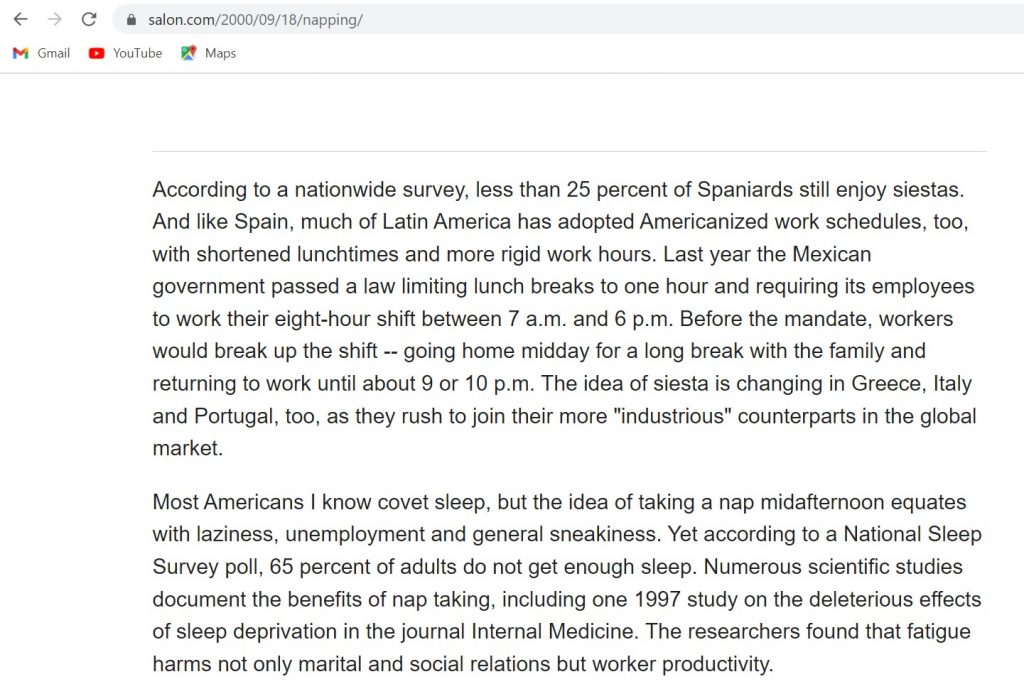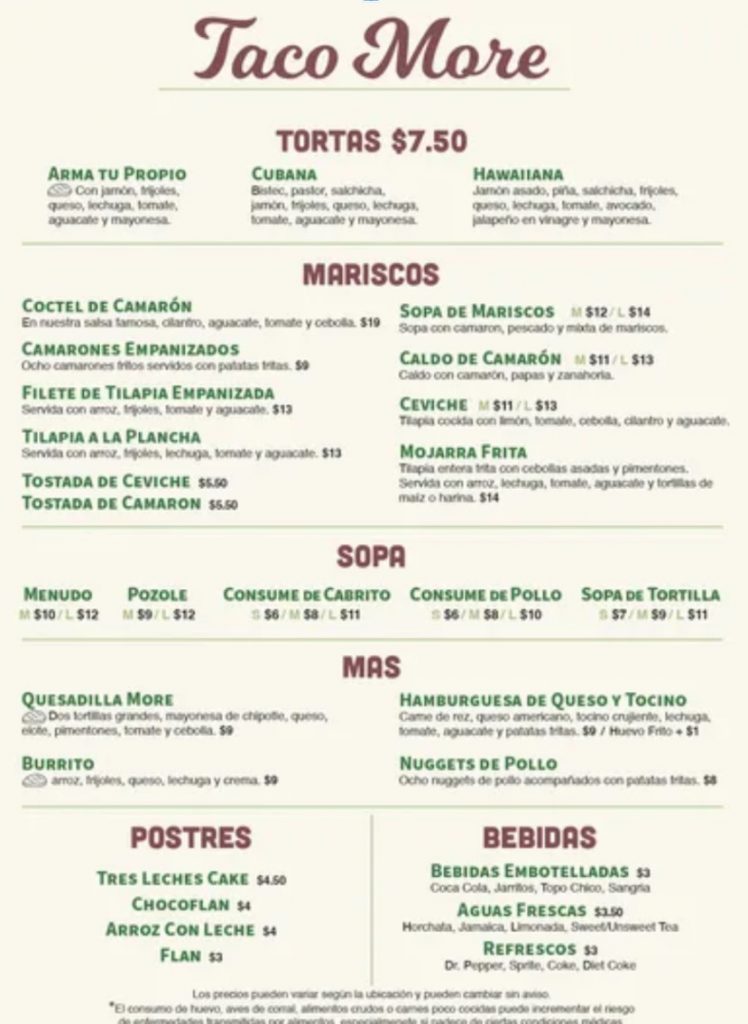Exploring Culture
The one thing I noticed in the book and the homework that was assigned to us was that we were to research how different naps are in Spanish countries and America. However, When doing the research I noticed that it said that recently a lot of the Spanish countries are starting to adapt American work schedules. Before they would take longer that way they could go home and spend it with their families. While they do this in America it is common for most adults to take at most an hour for a lunch break and get right back to work.
It seems that this shows that Hispanic cultures believe in taking breaks and being with family is important while in America it is very common to have parents who are working 24/7 and do not have time for their children. It is also shown that they do not consider taking longer breaks as lazy but as a need for both their mental and physical health.

Engaging in Communities
It is important to engage with the community because it is a way for us to bond and connect with those around us. By engaging communities it allows to learn and grow as we interact with those around who come from different back grounds. This is an excellent way for us to get rid of bias and heighten our understanding of those around us. On a global level by engaging our community we are able to broaden our horizons and learn and experience things that we never could in our own homes and cities.
One way that I engage my community is volunteer at a summer camp in Austin, TX called Tech Lab. This camp helps teach STEAM (science, technology, engineering, art, and math) skills to children in order to get them excited about these fields. The camp has scholarship programs so all kids can participate no matter the financial situations of the families.
Interpersonal Communication
At the beginning of class we were given an assignment where out teacher recorded herself asking questions about out lives and we had to answer in Spanish. Once both parts were put together it sounded like we were having one well blended conversation. This allowed me to work on my communication skills and timing while speaking Spanish. I also was able to expand my vocabulary so I was able to give my teacher a full answer to her questions.
While at the the Gloria Delgado Performing Arts Theatre, when talking to the performers about their show I tried to only talk in Spanish. This was great practice and allowed me to work on the pronunciation of my Spanish vocabulary. Because the performers were also responding in Spanish it also allowed me to work on translating in my head with no outside help. As the conversations went on I felt I was able to understand what was being said more and more and with less confusions and miscommunications in my head. This was a planned communication activity because I went to the performance in order to force myself to use Spanish outside of class.
Presentational Speaking
This semester at the very start of the semester we had an assignment to have us practice the pronunciation of certain words.
in this assignment, I struggled very hard with saying the words. I grew up in speech therapy and in dyslexia classes for English. After many years of having those classes just made it hard for my brain to comprehend. So for me to be able to do this assignment I had to listen to the words over and over while repeating them at the same time. This took me a while but after a lot of practice, I believe that I got a lot better and even understand how to pronounce certain things.
Presentational Writing
In this class on the first exam we were to ask to describe ourselfs by giving our names, age, where we are from, etc. all in Spanish to the we could.
This wasn’t hard just because of all the assignments that lead up to this exam. We had a conversation that where we were supposed to say those things and that the word was used a lot throughout that first week of classes when we started. The only thing that was hard was the spelling. To help remember I would write on flash cards the English word and the Spanish translation which I believe is the only reason I did a good job.

Interpretive Listening
One of the most recent things that we had to listen to was the conversation two assignment on Flipgrid. This conversation included “Introduce yourselves, say your greetings, your name, your age, where you live, what you study, and ask to one of your classmates how is the person he/she know well or is familiar with. Do not use ¿Y tú?, use full sentence questions.”
This assignment was harder to listen to for me because there wasn’t too much of a guide and knowing that most of the other things we have listened to had the same order did confuse me. However once relistening a few times I could better understand that way I could reply to someone else’s post. (below is my post for example)
Interpretive Reading
While in Texas I went to a restaurant called Taco More in Round Rock that is known for their menus in Spanish. I took my whole family this restaurant and ordered for everyone. In order to make sure I practiced my Spanish as much as possible I made sure to use as much Spanish as possible while in the restaurant.
This was a challenge because there were no English translations on the menu so I had to explain to my family what everything on the menu meant so they could get the type of food they enjoy. I overcame this challenge by teaching my family basic words about food to give them a better understanding of what was on the menu. I found this interesting because being from Texas there are a lot of words where the Spanish translation is very similar to the English translation. This made it a little easier to help my family understand was they were seeing on the menu. After I translated the menu to my family I then ordered for my entire family to ensure that I was practicing my Spanish as much as possible.
